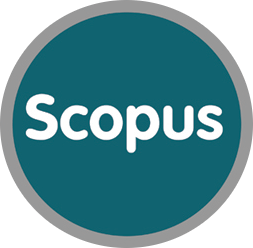A NOVEL USER PROFILE-BASED FUZZY APPROACH FOR EVALUATING TRUST IN SEMANTIC WEB
DOI:
https://doi.org/10.31436/iiumej.v20i1.1060Keywords:
Semantic Web, TrustAbstract
ABSTRACT: As a developed World Wide Web architecture, the Semantic Web collects traditional web contents with a formal and understandable semantic using a machine. The main purpose of the Semantic Web is to increase automation, web information processing, and improve interactions and collaboration among information systems. The subject of trust is one of the main challenges in the semantic web. Since different tools and individuals exist in the semantic web, a certain measure of trust in an entity cannot be used and a central system is responsible for data collection and estimating the reliability. In this study, a fuzzy system is used to evaluate the trust measure in the semantic web. For this purpose, the user profile data including a list of pages, user sessions, and visited pages in each session, and the time of page viewings are used as semantic parameters. After determining the general framework of trust in the semantic web, the effectiveness of the above mentioned semantic parameters on the trust measure is investigated and effective parameters are used for evaluation in the fuzzy system. The experiment results show that the proposed fuzzy method with a mean absolute error of 2.5% and an average precision of 97.5% could achieve the right value of trust in the semantic web.
ABSTRAK: Sebagai senibina World Wide Web, Semantik Web mengumpul kandungan web tradisional bersama semantik formal dan mudah difahami menggunakan mesin. Tujuan utama Semantik Web adalah bagi meningkatkan automasi, pemprosesan maklumat web, dan meningkatkan interaksi dan kerjasama antara sistem maklumat. Kepercayaan adalah salah satu cabaran utama dalam web semantik. Disebabkan perbezaan alatan dan pelbagai individu wujud dalam web semantik, langkah tertentu sebagai entiti dipercayai tidak dapat digunakan dan sistem pusat adalah bertanggungjawab bagi pengumpulan data dan kebolehpercayaan anggaran. Dalam kajian ini, sistem rawak telah digunakan bagi menilai tahap kepercayaan dalam web semantik. Bagi tujuan ini, data profil pengguna termasuk senarai halaman, sesi pengguna, dan halaman yang dikunjungi dalam setiap sesi, dan masa paparan halaman telah digunakan sebagai parameter semantik. Selepas menentukan rangka umum kepercayaan dalam web semantik, keberkesanan parameter semantik yang dinyatakan di atas pada ukuran kepercayaan telah disiasat dan parameter yang berkesan telah digunakan bagi penilaian sistem rawak. Keputusan eksperimen menunjukkan bahawa kaedah rawak yang dicadangkan dengan ralat mutlak purata sebanyak 2.5% dan ketepatan purata sebanyak 97.5% dapat mencapai nilai kepercayaan yang benar dalam web semantik.
Downloads
Metrics
References
Artz D, Gil Y. ( 2007) A survey of trust in computer science and the Semantic Web. Journal of Web Semantics: Science, Services and Agents on the World Wide Web, 5: 58–71. DOI: https://doi.org/10.1016/j.websem.2007.03.002
Arnau JP, Monedero DR, Forné J, Muñoz JL, Esparza O. (2012) Optimal tag suppression for privacy protection in the semantic Web. Data & Knowledge Engineering 81–82: 46–66. DOI: https://doi.org/10.1016/j.datak.2012.07.004
Richardson M, Argawal R, Domingos P. (2003) Trust management for the semantic web. In Proceedings of the Second International Semantic Web Conference, 351–368. DOI: https://doi.org/10.1007/978-3-540-39718-2_23
Lesani M, Bagheri S. (2006) Applying and Inferring Fuzzy Trust in Semantic Web Social Networks. CSWWS, Quebec City, Canada, 23–43. DOI: https://doi.org/10.1007/978-0-387-34347-1_3
Matsuo Y, Yamamoto H. (2009) Community gravity: measuring bidirectional effects by trust and rating on online social networks, in: Proceedings of the 18th International Conference on World Wide Web, ACM, New York, NY, USA Madrid, Spain, 751–760. DOI: https://doi.org/10.1145/1526709.1526810
Zolfaghar K., Aghaieb A. (2011) Evolution of trust networks in social web applications using supervised learning, Procedia Computer Science, (3) 833–839. DOI: https://doi.org/10.1016/j.procs.2010.12.137
O’Donovan J, Smyth B. (2006) Mining trust values from recommendation errors, International Journal on Artificial Intelligence Tools, (15):945–962. DOI: https://doi.org/10.1142/S0218213006003053
Victor P., Cornelis C, Cock MD, Teredesai A. (2008) Key figure impact in trust-enhanced recommender systems, AI Communications, 21(2–3):127–143.
Maximilien EM, Singh MP. (2005) Multiagent system for dynamic web services selection, in: Proceedings of 1st Workshop on Service-Oriented Computing and Agent-Based Engineering (SOCABE at AAMAS), 25–29.
Nguyen HT, Zhao W, Yang J. (2010) A trust and reputation model based on bayesian network for web services, in: IEEE International Conference on Web Services, IEEE, 251–258. DOI: https://doi.org/10.1109/ICWS.2010.36
Yahyaoui H. (2012) A trust-based game theoretical model for web services collaboration, Knowledge-Based Systems, (27):162–169. DOI: https://doi.org/10.1016/j.knosys.2011.10.014
Liu FM, Wang L, Gao L, Li H, Zhao H, Men SK. (2014)A Web Service trust evaluation model based on small-world networks, Knowledge-Based Systems, (57):161-167. DOI: https://doi.org/10.1016/j.knosys.2013.12.015
Sherchan W, Loke SW, Krishnaswamy S. (2006) A fuzzy model for reasoning about reputation in web services, in: Proceedings of the ACM Symposium on Applied Computing, SAC, ACM, 1886–1892. DOI: https://doi.org/10.1145/1141277.1141722
Pitsilis G, Chia PH. (2010) Does trust matter for user preferences? A study on Epinions ratings, in: The 4th IFIP International Conference on Trust Management (IFIPTM 2010) Morioka, Japan, 232–247. DOI: https://doi.org/10.1007/978-3-642-13446-3_16
Shirgahi H, Mohsenzadeh M, HajSeyyedJavadi H. (2017) Trust estimation of the semantic web using semantic web clustering, Journal of Experimental & Theoretical Artificial Intelligence, 29(3): 537-556. DOI: https://doi.org/10.1080/0952813X.2016.1199601
Shirgahi H, Mohsenzadeh M, HajSeyyedJavadi H. (2018) A new method of trust mirroring estimation based on social networks parameters by fuzzy system, International Journal of Machine Learning and Cybernetics, 9(7): 1153–1168. DOI: https://doi.org/10.1007/s13042-017-0638-z
Shekarpour S, Katebi SD. (2010) Modeling and evaluation of trust with an extension in semantic web. Web Semantics: Science, Services and Agents on the World Wide Web 8: 26–36. DOI: https://doi.org/10.1016/j.websem.2009.11.003
Kim YA, Phalak R. (2012) A trust prediction framework in rating-based experience sharing social networks without a Web of Trust. Information Sciences, (191):128-145. DOI: https://doi.org/10.1016/j.ins.2011.12.021






















